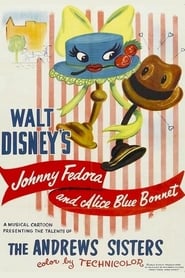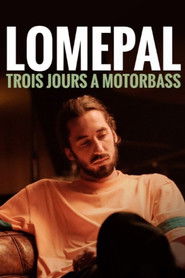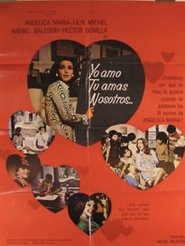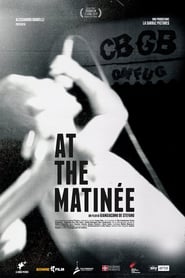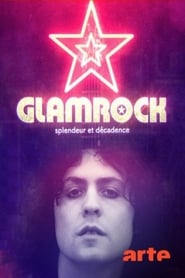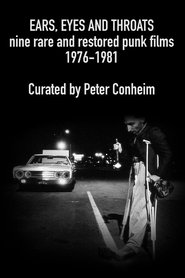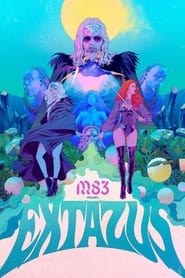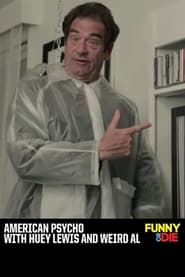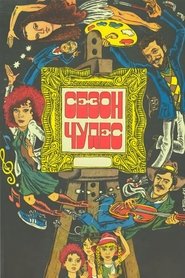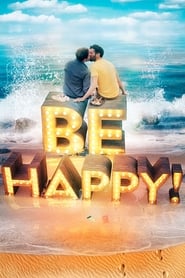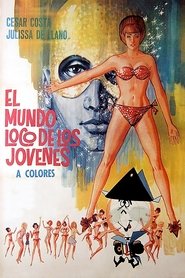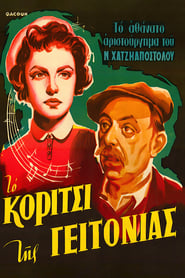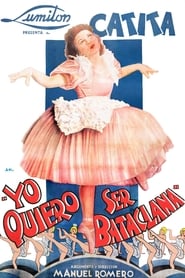Top Rated Music Movies on Pantaflix - Page 318
-
Johnny Fedora and Alice Blue Bonnet
1946
star 5.8This segment told the romantic story of two hats who fell in love in a department store window. When Alice was sold, Johnny devoted himself to finding her again. They eventually, by pure chance, meet up again and live happily ever after together, side by side. The Andrews Sisters provided the vocals. Like the other segments, it was later released theatrically. -
Yo Amo, Tu Amas, Nosotros...
1975
star 5.5A young girl, María, has 17 “boyfriends” and a fiancé approved by her mother. On his deathbed, Don Eustaquio sends Arturo, a lawyer, in search of his wife Victoria and his daughter Maria, whom he abandoned under pressure from her family. Arturo finds them working in a toy store. Arturo inherits the house of his ancestors during his lifetime, but ten children live there and Maria decides not to take them out because she has cleaned it. However, Eustaquio recovers and marries Victoria, as well as María marries Arturo, on the condition of adopting the children. -
At The Matinée
2019
At The Matinée
2019
star 6.8In 2006 CBGB, the most famous rock club in the world, closed its doors forever. Everybody associated it with bands such as Blondie, The Ramones and Talking Head, but no one remembers that what made it legendary were the hardcore matinées in the 80s. Walter Schreifels, the musician of the most influential hardcore punk bands, tells us a story not only about some kids and their music but of New York and its changes, too. -
Ears, Eyes and Throats: Restored Classic and Lost Punk Films 1976-1981
2019
star 6.8This collection of short films represents a hint of the tectonic shift in the underground film world in connection with the punk rock “movement.” Restored from original negatives, it showcases the reasonably well-known alongside the extremely rare, from music shorts to impressionistic documentary. -
Somebody Up There Likes Me
2020
star 7.5Mike Figgis’ enthralling documentary about the turbulent life and career of Ronnie Wood, legendary rock guitarist and long-time member of The Rolling Stones. -
Luan Santana: VIVA
2019
Luan Santana: VIVA
2019
star 10“VIVA” is the sixth DVD of the Brazilian singer Luan Santana. It was released on August 23, 2019 exclusively on Globoplay. This is the first music content to be part of the platform's catalog through a partnership with Som Livre. Luan was the artist who inaugurated the "Music" category within the service. The show was recorded in May 2019, in Salvador, Bahia, to an audience of over 20 thousand people. In addition to the presentation, with a setlist formed with hits and new songs, the project features backstage scenes where details of the project are shown, as well as curiosities and interviews. -
ExtaZus
2019
-
American Psycho with Huey Lewis and Weird Al
2013
star 6Huey Lewis is here to ask you “Do You Like Huey Lewis and the News” -
Wonder Season
1985
Wonder Season
1985
star 3.6Vadim, an artist overwhelmed by his family life, borrows a friend's dacha for a creative retreat. -
LOVEBITES - Daughters Of The Dawn - Live In Tokyo 2019
2019
star 9Features LOVEBITES' gig held at MyNavi BLITZ Akasaka held on January 27. Contains 17 songs in total. 1 Clockwork Immortality 2 Addicted 3 Bravehearted 4 The Crusade 5 Pledge Of The Saviour 6 Rising 7 Scream For Me 8 Break The Wall 9 Shadowmaker 10 Above The Black Sea 11 Empty Daydream 12 M.D.O 13 Journey To The Otherside 14 Edge Of The World 15 We The United 16 Epilogue 17 Don't Bite The Dust 18 Under The Red Sky 19 The Everlasting -
Be Happy!
2019
Be Happy!
2019
star 5.5A contemporary love story about Peter, a Freudian psychiatrist married to the Finnish Mika, David, a young British gay who lives in Banyoles, addicted to the Grinder, and Coco Lamour, a French actress from Paris. -
The Crazy World of the Youth
1967
star 6.2Pop-star who performs incognito is pressed into service to seduce a young woman who has rejected four childhood friends of his. -
Boy Band
2019
Boy Band
2019
star 5.5Decades after their last hit, the Heartthrob Boyz find themselves out of time, out of cash, and out of shape as they attempt to finish the album they hope returns them to glory. -
The Girl of the Neighbourhood
1954
star 3.5Spyros, an honest young man from a poor neighborhood, owns a small coffee shop. His only friends are the shoe shiner Tsichlas and the drunkard Barba-Stamos. One day, he decides that the time has come to ask for Pitsa's hand in marriage. The poor neighborhood and its people pressure Pitsa, who can't take it anymore and runs away from home during the engagement. She runs into Didi, a playboy who, in an effort to pay off his debts, supplies beautiful girls to a rich old man. -
Dynamite Dance
2019
Dynamite Dance
2019
star 7.2Bugs Bunny constantly teases Elmer with dynamite, to the beats of 'Dance of the Hours'. -
Brothers
2019
Brothers
2019
star 3.3From childhood to adulthood, brothers Bilal and Nassim support each other no matter what. -
New Wave Lovers
1981
New Wave Lovers
1981
star 2.8Freddy wants to be a star. He writes and performs his own songs, but has no record contract yet. He has an idea to form a group of back-up vocalists and recruits four beautiful girls who also happen to be his former lovers. They name themselves "THE FOUR PIN-UPS." But even this doesn't work because Freddy wants the spotlight for himself. However, by chance, the girls find themselves onstage without Freddy; they start singing and capture the audience and sign a contract with a big producer. They seem to be on the road to success with their own sound and a new wave image. Except the dream begins to lose its glow; scandal, conflicts, and disenchantment start affecting the group. They go from number one to... -
Yo quiero ser bataclana
1941
star 6.2Catita intercedes when a producer courts a chorus girl who is director's girlfriend.
 Netflix
Netflix
 Amazon Prime Video
Amazon Prime Video
 Apple iTunes
Apple iTunes
 Apple TV Plus
Apple TV Plus
 Disney Plus
Disney Plus
 Google Play Movies
Google Play Movies
 Paramount Plus
Paramount Plus
 Hulu
Hulu
 HBO Max
HBO Max
 YouTube
YouTube
 fuboTV
fuboTV
 Peacock
Peacock
 Peacock Premium
Peacock Premium
 Amazon Video
Amazon Video
 The Roku Channel
The Roku Channel
 AMC+
AMC+
 Kocowa
Kocowa
 Hoopla
Hoopla
 The CW
The CW
 Vudu
Vudu
 Starz
Starz
 Showtime
Showtime
 PBS
PBS
 Pantaflix
Pantaflix
 FXNow
FXNow
 Tubi TV
Tubi TV
 Kanopy
Kanopy
 Comedy Central
Comedy Central
 Crunchyroll
Crunchyroll
 Microsoft Store
Microsoft Store
 Redbox
Redbox
 Sun Nxt
Sun Nxt
 ABC
ABC
 DIRECTV
DIRECTV
 Crackle
Crackle
 Fandor
Fandor
 Plex
Plex
